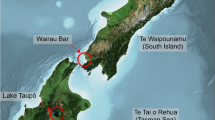Abstract
Immigration restrictions close-off large portions of the earth to large proportions of the earth’s population. For those who regard the earth and its natural resources as belonging to mankind equally and in common, this is a morally impermissible state of affairs. This is because, if the earth and its resources belong to all equally, then the exclusion of anyone from any portion of the earth will be a violation of their natural ownership rights. A commitment to Natural Resource Egalitarianism (NRE) is therefore held to entail a commitment to substantially more open, or even fully open borders. This paper does not seek to directly refute the claims of NRE, but rather seeks to demonstrate the failure of arguments from NRE, to establish the moral necessity of a general opening of borders. This paper addresses the two most prominent accounts of Open Borders NRE—Equal Division NRE and Egalitarian Ownership NRE—as well as a more recent attempt to advocate for open borders by combining these two positions into a so-called ‘Combined Model’. This paper argues that none of these three positions can plausibly and coherently account for the moral necessity of open borders.
Similar content being viewed by others
Notes
The idea of ‘common ownership’ is found in Locke’s writings on property, in which he states that ‘God…has given the Earth to the Children of Men, given it to Mankind in common’ (Locke, [1690] 1960, p. 286). It is from this idea that Locke derives his famous ‘Lockean Proviso’, the idea that no-one is injured by any other taking land from the commons and making it private, so long as ‘there was still enough, and as good left’ (Locke, [1690] 1960, p. 291).
It should be noted here that since co-authoring this paper with Risse, Blake has abandoned Egalitarian Ownership NRE and expressly argues against this position in his recent book, stating ‘I have become convinced…that we ought to avoid thinking of land itself as morally central to the justification of exclusion’ (Blake, Justice, Migration and Mercy, 2020, p. 53). Since Risse and Oberman continue to utilise this position to defend an open borders argument, however, an analysis of it remains worthwhile.
It is worth noting here that even while defending the utility of private property to other valued ends, Oberman’s reluctant acknowledgement that private property has ‘arguable’ advantages for enhancing individual autonomy fails to adequately express an observation long-established by liberal theory, that without private property – and in particular without the ability to claim a private space from which others may be rightfully excluded – the basic right of individual liberty is egregiously undermined. Abandoning rights of private property is not only not an option for Oberman then, it is also not an option for anyone with a serious concern for the protection and promotion of individual liberties.
Miller reiterates this point in his recent book on immigration, in his own response to ‘common ownership’ arguments for open borders. (Miller, 2016b, pp. 43-44).
Given Steiner’s commitment to rights of self-ownership, it is not actually clear that this route will be acceptable to him. Nevertheless, some adherents of Equal Division NRE may be willing to jettison rights of self-ownership if this allows them to pursue NRE.
For Miller’s full discussion of the ‘contribution that local cultures make to site values’, see Miller 2007, p. 60.
See Hayek (1937) for his explanation of how market processes lead to the discovery of information about the value of things for people. A useful summary of Hayek’s account can also be found in Boettke (2018), pp234-239.
I am grateful to an anonymous reviewer for this suggestion.
Steiner himself acknowledges the non-static nature of value, stating ‘No doubt the values of these sites tend to vary with such factors as technological change, population shifts and changing consumption patterns, as well as depletions of extractable resources and discoveries of new ones’ (Steiner, 1995, p. 19).
It has been suggested by an anonymous reviewer that the Valuation Problem may prove too much, in the sense that it presumably also applies to other forms of non-market compensation which we nevertheless generally accept and take for granted, for instance in the awarding of damages in tort law or where states expropriate private land to build infrastructure and must compensate the owners. In the sense that the amounts awarded in these cases are determined outside a market process, there will be a degree to which they do fall foul of the charge of arbitrariness. However, a relevant distinction applies here which is likely to reduce the severity of the arbitrariness charge in these kinds of cases as compared with Equal Division NRE. In the instance of generally accepted compensation, what is typically happening is that one party – the owner of expropriated land or the person injured under tort – is being awarded a sum broadly commensurate with the value of something which they previously enjoyed the use of and have now lost. In the case of expropriated land, then, there is already knowledge of how the land was being used by that owner and the value that was being derived from it by that use. Compensation is therefore calculated on this basis. Now compare this with Equal Division NRE, according to which every other person in the world besides the owner of a piece of land must be compensated, not for the loss of value they themselves were already deriving from the land, but for their exclusion from the land and their associated loss of opportunity to derive value from it. The Valuation Problem is particularly trenchant in the case of Equal Division NRE because it relies upon the assumption that we can meaningfully calculate the value that a piece of land would have for all those excluded from it, were they to be given opportunity to make use of it. In other words, it depends upon the calculation of entirely unknowable hypotheticals.
The term ‘liberty-right’ derives from the analytic system of Wesley Hohfeld (Hohfeld, 1919). On this system, liberty-rights consist in an absence of any duty to perform or refrain from performing some action X and are distinguished from claim-rights, which generate a correlative duty upon some other party to perform or not perform some action X. According to this system, if I hold a liberty-right to access some piece of land, this simply means I have no duty to not access that land. A liberty-right, in short, is an absence of duty. A claim-right, on the other hand, specifically entails the existence of a duty. On the Hohfeldian system, I have a claim-right to access some piece of land if and only if some party/parties have a duty to permit my access.
I take ‘using’ here to mean something more exclusionary than simply ‘accessing’ and therefore something more in line with ‘consuming’, on the basis that one person’s active use of a thing typically excludes others from using it, at least for the duration of that use.
The transfer of resources from developed states to people in developing states in the form of overseas aid has become increasingly well-established over recent decades, in particular since the UN set its target (in 1970) for developed countries to contribute at least 0.7% of their gross national income to overseas aid. Whether or not current levels of wealth transfer are adequate to address global privation, and where the obligation to meet any shortfalls might lie, is a matter beyond the scope of this paper. The major point being that where individuals cannot sustain themselves via access to and use of domestically available resources the duties of assistance that those in the rest of the world owe to them can be (and in many cases are) discharged via means other than an opening of borders.
Another possible contender for the category of ‘immovable resource’ could be climate. It seems clear, for example, that given the ‘immovable’ nature of local climate, where dramatic climate change caused parts of the world to become inhospitable or even uninhabitable to humans, the rights of those humans to seek out the means of sustaining themselves would translate into a right to relocate to those parts of the world that were still hospitable to human life, including a claim-right against inhabitants of those parts of the world to admit them. However, in this instance the right of immigration derives from the recognition, by liberal theory, of the equal rights of all individuals to life (including the right to take the measures necessary to sustain their own lives). It does not derive from a commitment to the idea that natural resources are equally owned by all of mankind in common. In other words, we can recognise the legitimacy of climate-based migration under the kinds of extreme conditions described without an account of NRE, or at least without anything more elaborate than the claim that individuals have equal rights to utilise the earth’s resources to sustain themselves.
Pevnick, for example, points out that wages paid at subsistence level or above are far easier to come by in some countries – ‘compliant countries’ – than in others – ‘non-compliant countries.’ On this basis, he suggests an instrumental argument for a legal right of immigration from non-compliant to compliant countries, as a means to ensuring individuals can satisfy their moral rights to subsistence (Pevnick, 2011, pp. 87-93).
References
Blake, M. (2020). Justice, Migration and mercy. New York: Oxford University Press.
Blake, M., & Risse, M. (2009). Immigration and Original Ownership of the Earth. Notre Dame Journal of Law Ethics and Public Policy, 23, no(1), 133–166.
George, H. (2015 [1871]). The Annotated Works of Henry George, Vol 1, Our Land and Land Policy and Other Works. Madison:Fairleigh Dickinson University Press.
Hayek. (1945). The Use of Knowledge in Society. American Economic Review XXXV No, 4, 519–530.
Hohfeld, W. (1919). Fundamental legal conceptions. New Haven: Yale University Press.
Locke, J. ([1690] 1960). Two Treatise of Government. Cambridge:Cambridge University Press.
Miller, D. (2005). Immigration: The case for limits. In A. I. Cohen, & C. H. Wellman (Eds.), Contemporary debates in Applied Ethics (pp. 193–206). Oxford: Wiley Blackwell.
Miller, D. (2007). National responsibility and global justice. Oxford: Oxford University Press.
Miller, D. (2016b). Strangers in our midst: The political philosophy of Immigration. Cambridge, Massachusets: Harvard University Press.
Oberman, K. (2017). Immigration and Equal Ownership of the Earth.Ratio Juris,144–157.
Pennington, M. (2011). Robust political economy. Cheltenham: Edward Elgar Publishing Limited.
Pevnick, R. (2008). An Exchange: The Morality of Immigration.Ethics and International Affairs,241–247.
Pevnick, R. (2011). Immigration and the Constraints of Justice: Between Open Borders and Absolute Sovereignty. Cambridge: Cambridge University Press.
Steiner, H. (1992). Libertarianism and the transnational Migration of People. In B. Barry, & R. E. Goodin (Eds.), Free Movement: Ethical issues in the transnational Migration of People and Money (pp. 87–94). Hemel Hempstead: Harvester Wheatsheaf.
Steiner, H. (1995). Liberalism and nationalism. Analyse & Kritik, 17, 12–20.
Wellman, C. (2011). The egalitarian case for Open Borders. In P. C. Wellman (Ed.), Debating the Ethics of Immigration: Is there a right to Exclude (pp. 57–77). Oxford: Oxford University Press.
Funding
No funding was received to assist with the preparation of this manuscript.
Author information
Authors and Affiliations
Corresponding author
Ethics declarations
Conflict of Interest
The author has no relevant financial or non-financial interests to disclose.
Additional information
Publisher’s Note
Springer Nature remains neutral with regard to jurisdictional claims in published maps and institutional affiliations.
Rights and permissions
Springer Nature or its licensor (e.g. a society or other partner) holds exclusive rights to this article under a publishing agreement with the author(s) or other rightsholder(s); author self-archiving of the accepted manuscript version of this article is solely governed by the terms of such publishing agreement and applicable law.
About this article
Cite this article
Hemsley, E. Open borders via natural resource egalitarianism: a failed route. Philos Stud 180, 1905–1925 (2023). https://doi.org/10.1007/s11098-023-01964-0
Accepted:
Published:
Issue Date:
DOI: https://doi.org/10.1007/s11098-023-01964-0




